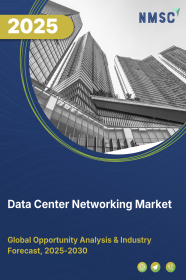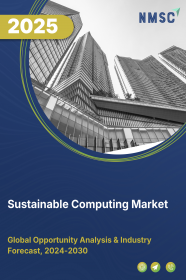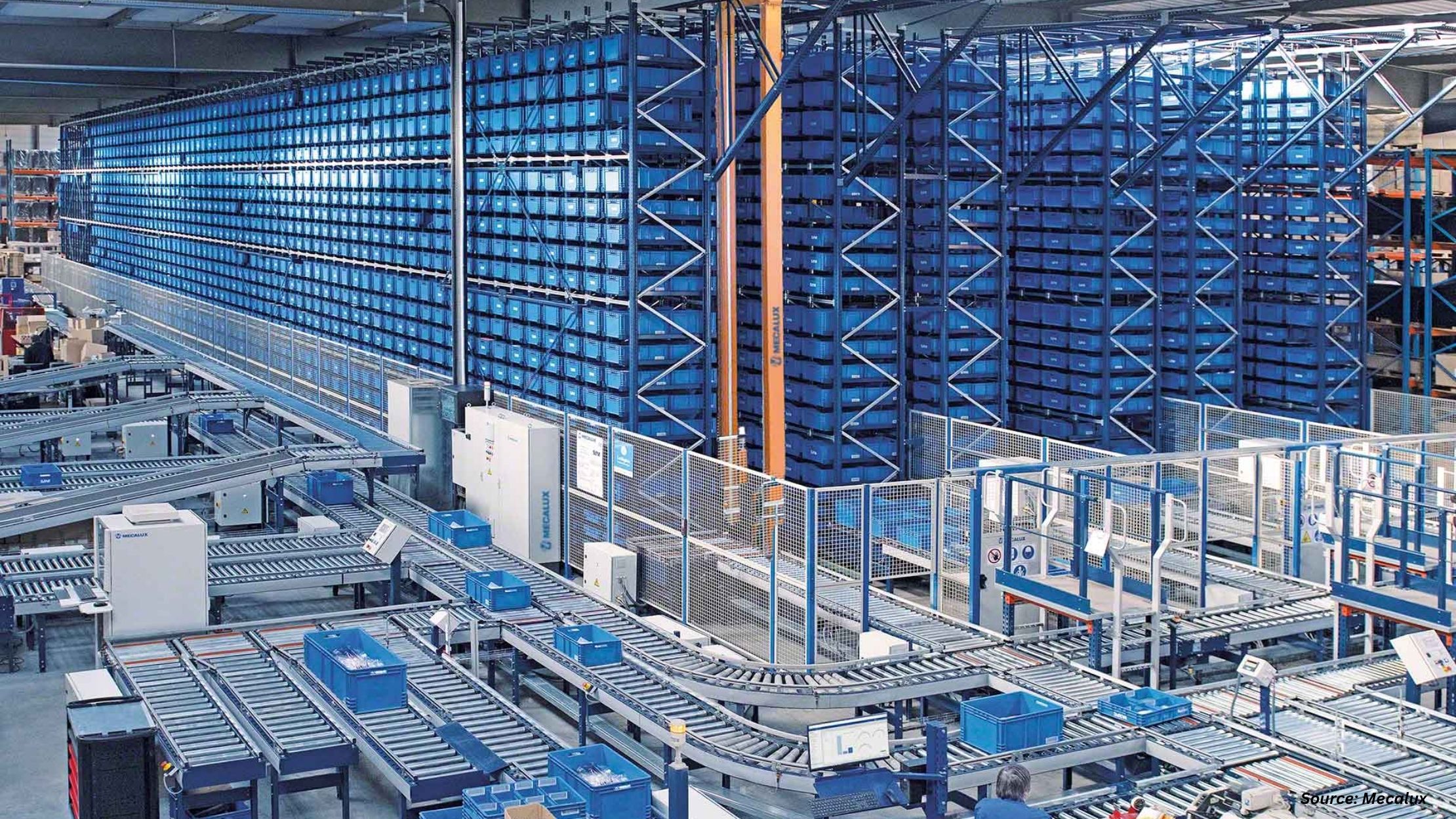
China Data Center Market by Infrastructure(Hardware, Software, Services), by Type(Enterprise Data Centers, and others), by Data Center Rating(Tier I, and others), by Size(Small Data Centers, and others), by Server Rack Density(<10kW, and others), by Data Center Redundancy(N+1, and others), by PUE Outlook(Less than 1.2, and others), by Design Outlook(Traditional, and others), by End User(Cloud Service Provider and others)- Opportunity Analysis and Industry Forecast, 2024–2030
Industry: ICT & Media | Publish Date: 02-Aug-2025 | No of Pages: 132 | No. of Tables: 158 | No. of Figures: 103 | Format: PDF | Report Code : IC2437
China Data Center Market Overview
The China Data Center Market size was valued at USD 14.47 billion in 2023, and is predicted to reach USD 33.37 billion by 2030, at a CAGR of 12.7% from 2024 to 2030.
The data center market, also referred to as the network infrastructure market, encompasses the complete lifecycle of specialized infrastructure designed for hosting computing systems, spanning from initial planning to construction, operation, and ongoing maintenance. This infrastructure includes diverse components such as servers, storage systems, and networking gear, facilitating services such as cloud computing and connectivity solutions. Presently, the industry witnesses widespread adoption of cloud services, alongside the emergence of edge computing to mitigate latency issues.
Key trends within the sector include a growing emphasis on sustainability, heightened focus on cybersecurity, the integration of hybrid and multi-cloud approaches, and the impact of 5G networks. These trends underscore the industry's adaptation to meet the increasing demand for scalable, efficient, and secure data processing and storage solutions amidst the era of digital transformation. Projections by the United States International Trade Commission anticipate substantial growth in the data processing and storage China data center market, with estimates rising from USD 56 billion in 2020 to USD 90 billion by 2025.
Accelerated Growth of China’s Data Center Market
China's data center industry is experiencing rapid expansion, driven by the nation's robust digital economy and strategic infrastructure initiatives. As of 2024, the country boasts approximately 440 operational data centers, positioning it as a global leader in digital infrastructure.
The digital economy's significant contribution to China's GDP underscores the increasing reliance on data centers to support sectors such as e-commerce, finance, and artificial intelligence. This demand is further amplified by the government's commitment to digital transformation and the implementation of policies like the East-to-West Computing Capacity Diversion Project, which aims to establish eight computing hubs and ten data center clusters by 2025.
In response to the growing need for sustainable operations, China's data center industry is adopting green technologies, including renewable energy sources and advanced cooling systems. The introduction of the Green Data Center standard in 2023 mandates specific criteria for equipment and services, aiming to enhance energy efficiency and reduce environmental impact.
Furthermore, the integration of artificial intelligence and automation is transforming data center operations, enabling predictive maintenance and optimized energy consumption. Companies like Tencent Cloud and VNET Group are leveraging AI-driven management systems to improve scalability and operational efficiency.
As China continues to invest in digital infrastructure and sustainable practices, the data center market is poised for sustained growth, reinforcing the nation's position at the forefront of the global digital economy.
Innovation in Data Center Solutions by Chinese Firms is Driving Market Expansion
Chinese companies are leading a wave of innovation in data center technologies, significantly accelerating the growth of the domestic market. A standout example of this forward momentum is the world’s first commercial underwater data center, constructed off the coast of Hainan Island. This pioneering project, developed by Highlander in partnership with China Offshore Oil Engineering Co. (COOEC), utilizes submerged cooling systems to maximize energy efficiency and reduce operational costs. By leveraging the ocean’s natural cooling properties, this initiative marks a bold step toward sustainable and space-saving data infrastructure, reflecting China’s commitment to cutting-edge solutions in the face of growing digital demands.
While this breakthrough offers promising gains in sustainability, it also brings environmental and regulatory challenges that require careful oversight. Nonetheless, it highlights how Chinese firms are reimagining conventional data center models with next-generation technologies.
Simultaneously, the inland province of Guizhou is emerging as a major data center hub within China. Recognized for its cooler climate and abundant renewable energy sources, Guizhou has become an attractive destination for large-scale data center deployment. The province is rapidly scaling up operations, already housing 18 major data centers, with tech giants like Huawei and Tencent among its key stakeholders. With government-backed plans to reach 800,000 racks and support up to 4 million servers by 2025, Guizhou is positioning itself as a globally competitive data ecosystem.
Together, these advancements—from underwater infrastructure to inland mega-hubs—underscore the strategic and innovative direction of China’s data center market. They not only enhance the country’s digital resilience and capacity but also set new global benchmarks for efficiency, scalability, and sustainability.
High Initial Investment Hinders Market Growth
Despite the rapid expansion of China's data center market, one of the most significant barriers to further growth is the high initial capital investment required for building and maintaining advanced facilities. Constructing data centers involves substantial expenditure on land acquisition, high-performance computing equipment, power supply systems, and cooling infrastructure. This level of financial commitment often proves prohibitive for small and medium-sized enterprises (SMEs) and start-ups, limiting market entry to only well-capitalized players and large technology firms.
Moreover, as China tightens its environmental regulations in pursuit of carbon neutrality goals, data center operators are under increasing pressure to invest in energy-efficient technologies and sustainable design practices. These include advanced cooling systems, renewable energy integration, and compliance with new green building standards. While these initiatives are crucial for long-term sustainability, they add to the already high operating costs, further straining the financial viability for new or smaller market participants. As a result, the combination of steep capital requirements and regulatory demands continues to act as a drag on the broader expansion and diversification of China’s data center industry.
Integration of Edge Computing Presents Lucrative Opportunity for Market Expansion
The adoption of edge computing is unlocking significant growth potential within China’s data center market by enabling faster, more efficient data processing closer to end users. By reducing latency and supporting real-time analytics, edge computing is critical for emerging technologies such as the Internet of Things (IoT), augmented reality (AR), and autonomous systems. This distributed computing model eases the pressure on large, centralized cloud data centers while offering enhanced scalability and operational flexibility.
Edge computing also improves data security and privacy by allowing sensitive information to be processed locally rather than transmitted to distant servers, which aligns with China’s stringent data protection regulations. As a result, this decentralized infrastructure supports industry-specific applications across smart cities, manufacturing, healthcare, and more, creating new avenues for network infrastructure providers to expand their services.
Investment trends reflect growing enthusiasm for edge technologies, exemplified by funding rounds for startups like Armada, which specialize in edge solutions. These developments highlight a strategic push to overcome connectivity challenges, reduce network congestion, and bridge the digital divide across China’s vast and varied regions, positioning edge computing as a key driver for future market growth.
Competitive Landscape
The key players operating in the China data center industry include China Telecom Corporation Limited, China United Network Communications Group, China Mobile International Limited (CMI), GDS Holdings Limited, Alibaba Cloud, 21Vianet Group (VNET), Huawei Technologies Co., Ltd., Chayora, Digital Realty, Equinix, Chindata Group, Tencent Cloud, BDx Data Center, JD Cloud (JD.com), NTT Global Data Centers Corporation and others.
China Data Center Market Key Segments
By Infrastructure
-
Hardware
-
IT Hardware
-
Servers
-
Storage Systems
-
Networking Equipment
-
-
Power Infrastructure Hardware
-
Uninterruptible Power Supplies (UPS)
-
Generators
-
Automatic Transfer Switches
-
Power Distribution Units (PDUs)
-
-
Mechanical Infrastructure Hardware
-
Computer-Room Air Conditioners (CRAC/CRA Units)
-
Chillers
-
Racks
-
Cable Management Systems
-
-
Safety & Security Hardware
-
Fire Suppression Systems
-
Physical Security Systems (CCTV, access controls)
-
-
-
Software
-
DCIM & Monitoring
-
Automation & Orchestration
-
Backup & Disaster Recovery
-
Security Software
-
Virtualization Software
-
Analytics & Reporting Software
-
Other Software
-
-
Services
-
Planning & Professional Services
-
Site & Building Design
-
System/Infrastructure Engineering
-
Professional Advisory (compliance, energy audits)
-
-
Integration & Deployment Services
-
Electrical & Mechanical Installation
-
Commissioning & Acceptance Testing
-
-
Operation & Support Services
-
Preventive & Corrective Maintenance
-
Facilities Management / Remote Monitoring
-
Support Services (helpdesk, onsite SLA support)
-
-
Hosting & Managed Services
-
Colocation & Cloud Hosting Services
-
Virtual/Private Hosting Platforms
-
-
By Type
-
Enterprise Data Centers
-
Colocation Data Centers
-
Cloud Data Centers
-
Hyperscale Data Centers
-
Edge Data Centers
-
Micro Data Centers
-
Others
By Data Center Rating
-
Tier I
-
Tier II
-
Tier III
-
Tier IV
By Size
-
Small Data Centers
-
Med-sized Data Centers
-
Large Data Centers
By Power Capacity
-
<0.01 GW (Small)
-
0.01-0.05 GW (Medium)
-
0.05-0.1 GW (Large)
-
0.1-0.5 GW (Hyperscale)
-
>0.5 GW (Mega-campus)
By Server Rack Density
-
<10kW
-
10-19kW
-
20-29kW
-
30-39kW
-
40-49kW
-
>50kW
By Data Center Redundancy
-
N (No Redundancy)
-
N+1 (Single-fault tolerant)
-
N+2 (Dual-fault tolerant)
-
2N (Full duplication)
-
2N+1 (Concurrently maintainable + extra spare)
-
3N/2N+2 (Multi-backup fault tolerant)
By PUE Outlook
-
Less than 1.2
-
1.2 - 1.5
-
1.5 - 2.0
-
Greater than 2.0
By Design Outlook
-
Traditional
-
Containerized
-
Modular
By End User
-
Cloud Service Provider
-
Technology Provider
-
Telecom
-
Healthcare
-
BFSI
-
Retail & E-commerce
-
Entertainment & Media
-
Government
-
Energy
-
Others
Key Players
-
China Telecom Corporation Limited
-
China United Network Communications Group
-
China Mobile International Limited (CMI)
-
GDS Holdings Limited
-
Alibaba Cloud
-
21Vianet Group (VNET)
-
Huawei Technologies Co., Ltd.
-
Chayora
-
Digital Realty
-
Equinix
-
Chindata Group
-
Tencent Cloud
-
BDx Data Center
-
JD Cloud (JD.com)
- NTT Global Data Centers Corporation
REPORT SCOPE AND SEGMENTATION:
|
Parameters |
Details |
|
Market Size in 2023 |
USD 14.47 Billion |
|
Revenue Forecast in 2030 |
USD 33.37 Billion |
|
Growth Rate |
CAGR of 12.7% from 2024 to 2030 |
|
Analysis Period |
2023–2030 |
|
Base Year Considered |
2023 |
|
Forecast Period |
2024–2030 |
|
Market Size Estimation |
Billion (USD) |
|
Growth Factors |
|
|
Companies Profiled |
15 |
|
Market Share |
Available for 10 companies |
|
Customization Scope |
Free customization (equivalent up to 80 working hours of analysts) after purchase. Addition or alteration to country, regional, and segment scope. |
|
Pricing and Purchase Options |
Avail customized purchase options to meet your exact research needs. |

















 Speak to Our Analyst
Speak to Our Analyst





















